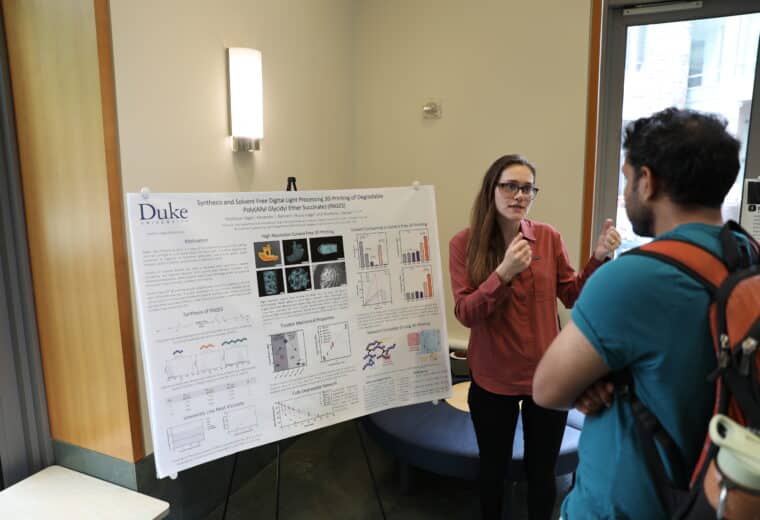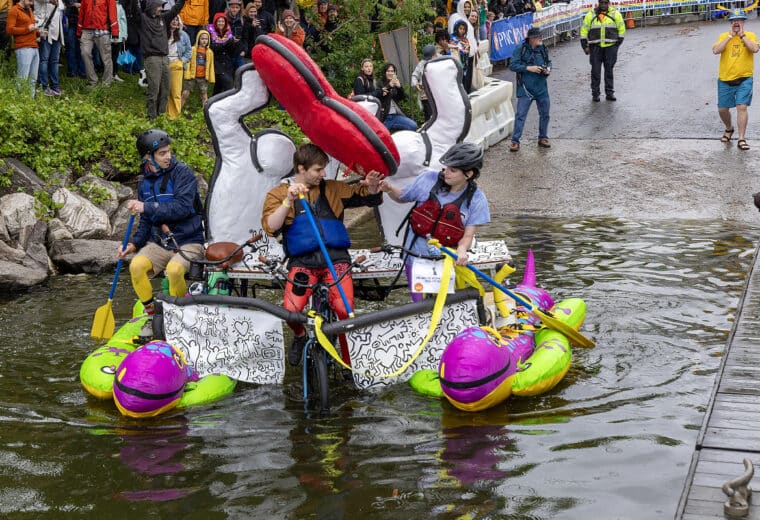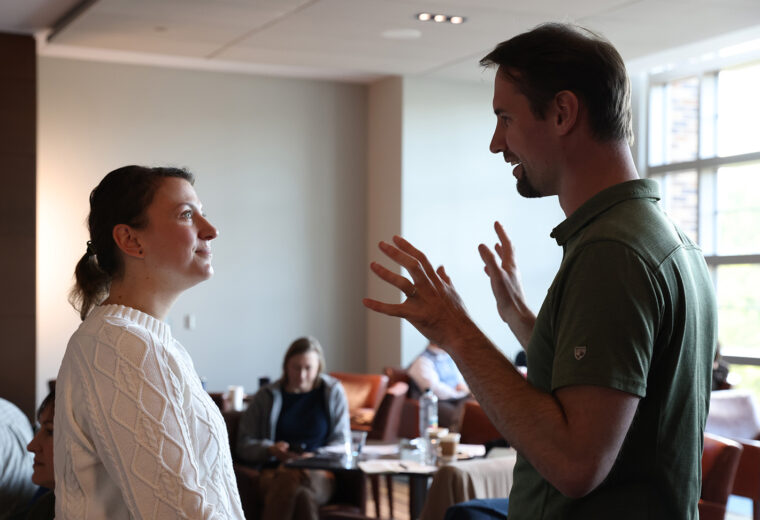
Giving Prospective Graduate Students a Peek Behind the Curtain
Duke Engineering’s annual Graduate School Boot Camp provides resources for those interested taking their next academic step—at Duke or anywhere else

Duke Engineering’s annual Graduate School Boot Camp provides resources for those interested taking their next academic step—at Duke or anywhere else

A student team rekindled a class project with the help of ChatGPT and debuted their construction site delivery scheduling system over the summer.

Researchers at Duke University have developed a polymer that can be used in commercial 3D printers without solvent, leading to major advantages across different applications.

Award will provide $100,000 to work toward reprogramming immune cells for the treatment of Hodgkin’s lymphoma

Join Dean Jerry Lynch for a conversation with Professors Judy Ledlee and Jesko Von Windheim about how Duke's Design Climate program guides students through the creation of a triple-bottom-line startup that will have a positive impact in the world.

Mark Borsuk and Will Ferris were recognized for creating RESILE and CIRCAD as part of their work in risk and resilience engineering; Sara Oliver, for the launch of the Climate & Sustainability Engineering Master of Engineering program, and Judy Ledlee, Alexis Carpenter and Helen Whiteley for the launch of the Design Climate course.

Seniors in Duke's hands-on mechanical engineering capstone built an entry for the Baltimore Kinetic Sculpture Race, an annual event with roots dating to the 1960s.

Jon Reifschneider, Pramod Singh and team developed Inquisite from their work running the Artificial Intelligence for Product Innovation Master's Program at Duke University’s Pratt School of Engineering.

Created to integrate ethics into the undergraduate engineering curriculum, Character Forward is a partnership between Duke Engineering and The Purpose Project at Duke

New program allows color blind Duke personnel to borrow EnChroma color enhancing glasses from the library for up to a week at a time

Researchers give robots a sense of touch by “listening” to vibrations, allowing them to identify materials, understand shapes and recognize objects just like human hands

The Duke Summit on AI for Health Innovation brought health care, engineering and industry leaders together to push forward emerging opportunities powered by AI